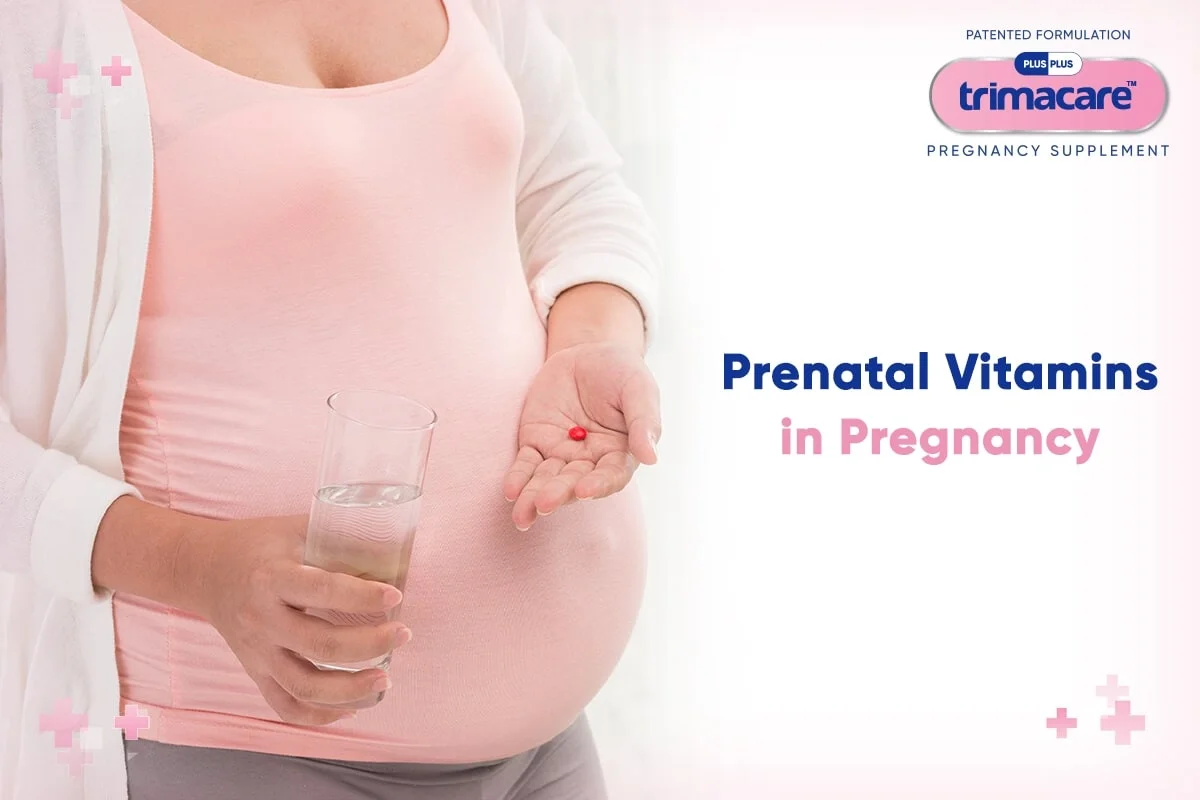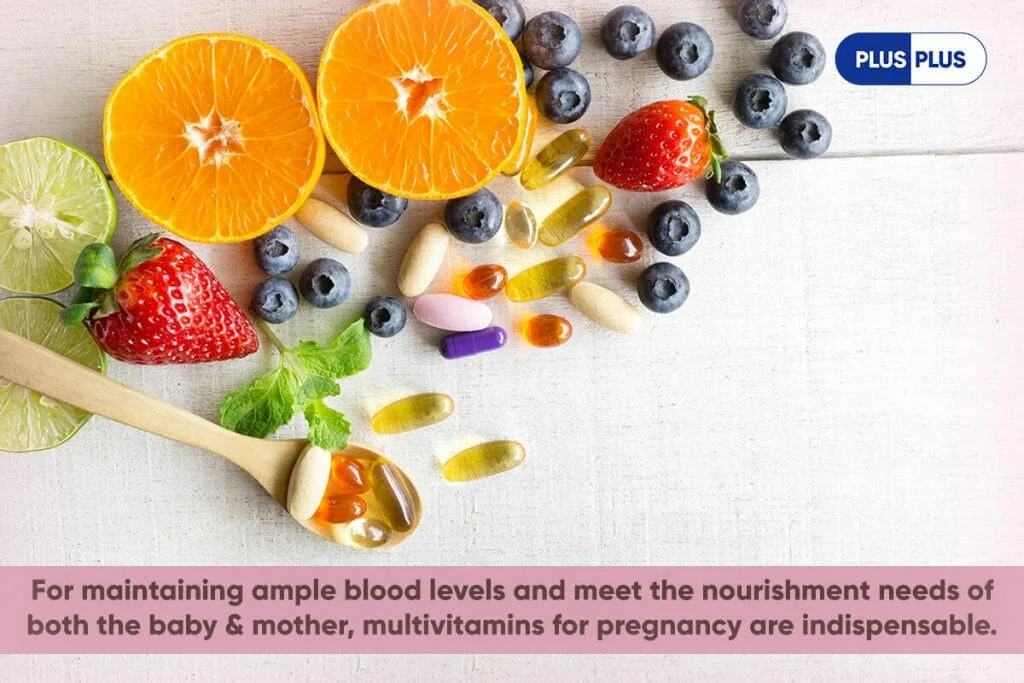Owing to the changes in food habits and lifestyle changes, multivitamins have become an essential part of our modern lives. They help alleviate the complexities that we face due to the dearth of vitamins that we sometimes miss from our food. Especially during pre and post-pregnancy, prenatal vitamins in pregnancy help immensely to the benefit of both mother and the baby.
Prenatal vitamins for pregnancy
Either you are already in your early pregnancy or planning for pregnancy soon, prenatal vitamins for pregnancy are essential. To be specific, any woman who is her childbearing age and intending to begin her family way should take prenatal vitamins.
When a woman is in her early pregnancy or heard of pregnancy stories from other women and getting worried about her own, there may occur many doubts in her mind:
- What can a pregnant woman take to boost the immune system?
- Is multivitamin and multimineral capsule good for pregnancy?
- What happens if you don’t take Prenatal supplements every day?
Such doubts are reasonable. After all, pregnancy is a memorable journey for a woman, and she is bringing another new human onto the Earth from her womb.
On the other hand, there are also many misconceptions about the usage and intake of prenatal vitamins. Thus, every woman of childbearing age must have enough knowledge about good prenatal vitamins for pregnancy, and when they should start taking vitamins during pregnancy. There should not be any delay in starting with multivitamins as the early stages are crucial for the development of a healthy baby.
Vitamins for pregnancy
A pregnant woman needs mainly calcium, Vitamin B, copper, zinc, vitamin D, iron and folic acid, and other micronutrients as per her health condition. Though the requirement for prenatal is common for women, they also differ with the lifestyle, habits, and food preferences of the woman. Besides, only your family doctor who has done a comprehensive check of your health history and blood report can guide you on which prenatal is suited for you.
Over the counter prenatal vitamins
Prenatal vitamins are easily available over the counter. Such multivitamins were designed under strict adherence to medical regulatory authorities like the Indian Council of Medical Research (ICMR) and the World Health Organization (WHO) and are safe for consumption.
For instance, TrimacareTM multivitamins for pregnancy are one such kind. They are designed as per ICMR’s and WHO’s regulations and cater fully to the needs of Indian women. They are also easily available in all medical shops and online pharmacies. Suitable dosage of TrimacareTM per month caters to the nutritional needs of a pregnant woman, without any necessity for other supplements. TrimacareTM range of tablets is vegan, free from animal products, and purely plant-based too.
Importance of multivitamin for pregnant woman
The fetus starts developing from the zygote level to a fully human in the womb of the mother. The baby takes the nutrition required at all stages of development from the mother herself. We all might have heard this common phrase – pregnancy glow. The boost in the mother’s blood levels to meet the nutritional needs of both the mother and the baby is what that imparts this pregnancy glow.
Thus, for maintaining ample blood levels and meeting the nourishment needs of both the baby and mother, multivitamins for pregnancy are indispensable. Besides, many modern women do not consider their food and diet patterns due to the lack of time, knowledge, and energy during pregnancy. Consuming proven multivitamins for pregnancy ensures all such challenges are handled at one go.
Women who took the guidance of doctors in choosing suitable prenatal multivitamins for them and took them regularly experience lesser complications than those who do not do so. Also, babies tend to develop healthier, without any birth deformations. Pregnancy-related complications, chances of C-sections, premature birth issues, and post-delivery bleeding, and vaginal infections are all limited with guided usage of prenatal. Babies born to mothers who are careful about their nutritional needs often have minimal birth defects, respiratory problems.
Are multivitamins the only solution?
Never. Multivitamins can never replace a wholesome diet that is rich in all nutrients and vitamins. Mothers-to-be should first focus on taking fresh, properly boiled, and chemical-free food as much as possible.
Pregnant women should avoid:
- Raw or uncooked meat and eggs
- Unpasteurized milk and related products
- Fish that contain a high amount of mercury
- Highly oily and spicy food as they might lead to acidity
- Raw salads that are made outside in unhygienic environments
- High amounts of packed and processed food, as they are laden with chemicals
- Any foods that they have never tried or tested to date
- Smoking and alcohol
Pregnant women should fill their plates with healthy foods that can give rise to the healthy development of the baby. They should include the following foods in their diet chart:
- Pasteurized milk and related products
- Yogurt and curd
- Fresh boiled vegetables
- Items made with lesser oil and spices
- Dark-coloured vegetables and fruits as they contain antioxidants that boost immunity
- Homemade and fresh food
- Leafy vegetables, in boiled and cooked form
- Boiled eggs and thoroughly cooked organic meat
- Soaked nuts, as they provide easily digestible protein and omega-3 fatty acids
- Drink plenty of safe and pure water to maintain energy levels and prevent urinary tract infections.
Conclusion
Prenatals are essential for every woman planning a pregnancy. As soon as a woman identifies symptoms of pregnancy, they should consult a doctor for confirmation and guidance. The doctor would suggest a diet chart and prenatal after examining her needs. They should be strictly followed by the mother to ensure the healthy growth of the baby and to maintain her health needs too.
Some women might tend to not understand the need for multivitamins due to misconceptions, while some may think to test and try the multivitamins available over the counter. Both these might not help the mother much. Certainly.
TrimacareTM is designed for 3 trimesters according to the required levels of the supply of vitamins and minerals. TrimacareTM is an all-in-one solution for the requirement of the pregnant woman with several advantages like High absorption level, plant-based, zero side-effects, etc. Also, these pills are specially designed according to the guidelines of ICMR and WHO. TrimacareTM is easily available at a chemist near you and online.
Frequently Asked Questions:
1. What are prenatal vitamins?
Prenatal vitamins are multivitamins made just for pregnant women to make sure they get all the nutrients they need during their pregnancy.
2. Why are prenatal vitamins important during pregnancy?
Prenatal vitamins are essential during pregnancy because they supply essential nutrients such as folic acid, iron, and calcium, which support the baby’s healthy development and aid in preventing birth defects.
3. When should I start taking prenatal vitamins?
It’s prescribed to begin taking prenatal vitamins before conception, in a perfect world no less than one month preceding becoming pregnant, to guarantee your body has sufficient supplement stores for early fetal turn of events.
4. Can I take regular multivitamins instead of prenatal vitamins during pregnancy?
Prenatal vitamins are specifically formulated with higher levels of certain nutrients like folic acid and iron, which are essential for pregnancy, whereas regular multivitamins contain many of the same vitamins and minerals. Prenatal vitamins should therefore generally be taken during pregnancy.
5. Are there any side effects of taking prenatal vitamins?
When taking prenatal vitamins, some people may experience mild side effects like nausea or constipation. In any case, these aftereffects are typically transitory and can frequently be eased by taking the nutrients with food or changing the dose. It’s vital to talk with your doctor on the off chance that you experience any disturbing secondary effects.
A Certified Nutritionist with a rich healthcare background in health journalism, the author has immense experience in curating reader-friendly, engaging, and informative healthcare blogs to empower readers to make informed pregnancy-related decisions.













